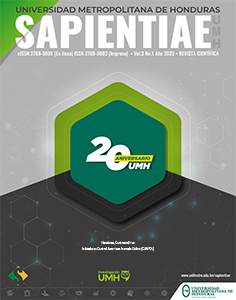RIGHT TO BE FORGOTTEN
DOI:
https://doi.org/10.5377/umhs.v3i1.15302Keywords:
Public interest, Censorship, Freedom of expression, Right to privacy and intimacyAbstract
The objective of this paper is to present a reflective analysis on the nature and viability of the right to be forgotten, proposing it as a balancing factor between information freedoms (freedom of expression and right to information) and the right to privacy, intimacy and protection of personal data, taking as a regulatory basis the public interest. The figure of the right to be forgotten has been potentiated in the digital and post-COVID era, which although it can be constituted as an adequate instrument for the protection of the dignity of people, can also be exploited as a mechanism of prior censorship, harms the democratic life of nations. Which is why it is important to analyze the methods, limits and requirements of origin of a figure that to date is still very controversial and occasionally misunderstood.
230




